UNHCR continues partnerships with Sheikhul Islam Office during Ramadan for the third year in Thailand amid COVID-19 crisis
UNHCR continues partnerships with Sheikhul Islam Office during Ramadan for the third year in Thailand amid COVID-19 crisis
Page 6 of 15
-

UNHCR scales up response to catastrophic floods in Pakistan
6 Sep 2022This is a summary of what was said by UNHCR spokesperson Matthew Saltmarsh – to whom quoted text may be attributed – at today’s press briefing at the Palais des Nations in Geneva.
-
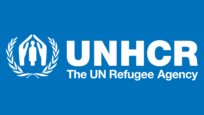
UNHCR applauds Liberia for removing gender discrimination from its nationality law
24 Aug 2022In a major development to prevent statelessness, Liberia has amended its nationality law to grant women and men equal rights to confer nationality to their children. The President of Liberia signed into law an act to amend the Aliens and Nationality Law on 5 August, removing gender-discriminatory provisions which prevented […]
-
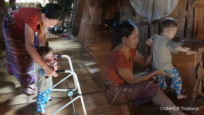
Stories of extraordinary mothers
11 Aug 2022With Mother’s Day just days away, UNHCR, the UN Refugee Agency, is proud to celebrate the strength and resilience we see every day in mothers who have been forced to flee. Many have had to leave their homes and loved ones behind for the promise of a better, safer future […]
-
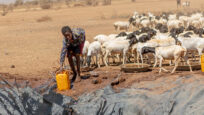
Ethiopian families struggle to survive amid record drought
5 Aug 2022UNHCR is supporting local authorities in the Somali Region of Ethiopia to provide urgent aid to thousands forced to leave in search of water during worst drought for 40 years.
-

Tackling school dropouts to secure a better future for refugee children in Thailand
12 Jul 2022Following disruptions to education caused by the COVID-19 pandemic, UNHCR and partners are finding solutions so that refugee children can access and stay in school.
-

UNHCR deeply saddened at loss of life and destruction from Afghanistan earthquake
23 Jun 2022GENEVA – UNHCR, the UN Refugee Agency, is deeply saddened to see the tragic aftermath of this morning’s deadly earthquake in Afghanistan. Reports suggest that so far nearly 1,000 people have died and more are injured amid large-scale destruction. UNHCR has deployed staff to the most affected areas in Pakitika […]
-
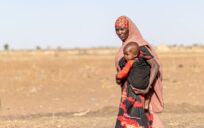
UNHCR: Global displacement hits another record, capping decade-long rising trend
16 Jun 2022Despite some signs of progress, the speed and scale of forced displacement is outpacing solutions for refugees
-
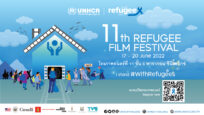
UNHCR launches the “11th Refugee Film Festival” to commemorate World Refugee Day amidst the alarming global displacement crisis
7 Jun 2022The number of people forced to flee conflict, violence, human rights violations, and persecution has now crossed the staggering milestone of 100 million for the first time on record, propelled by the war in Ukraine and new waves of violence or protracted conflict in countries including Ethiopia, Burkina Faso, Myanmar, […]
-
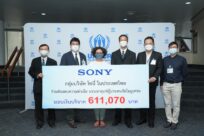
UNHCR มีความยินดีต่อการร่วมสนับสนุนด้านมนุษยธรรมของกลุ่มบริษัทโซนี่ ในประเทศไทย แก่ผู้ลี้ภัยและผู้พลัดถิ่นในสถานการณ์ฉุกเฉินยูเครน
25 May 2022วิกฤตด้านมนุษยธรรมในประเทศยูเครนยังคงขยายตัวอย่างต่อเนื่อง สำนักงานข้าหลวงใหญ่ผู้ลี้ภัยแห่งสหประชาชาติ (UNHCR) ได้ประกาศสถานการณ์ยูเครนเป็นสถานการณ์ฉุกเฉินระดับ 3 ซึ่งเป็นระดับสูงที่สุดที่เรามี และยังคงทำงานอยู่ในพื้นที่ร่วมกับพันธมิตรด้านมนุษยธรรมเพื่อช่วยเหลือผู้ลี้ภัยและประเทศเพื่อนบ้านที่มอบความช่วยเหลือแก่ผู้ลี้ภัยอย่างโอบอ้อมอารี ซึ่งเราไม่สามารถทำงานนี้ได้เพียงลำพังและต้องการความช่วยเหลือที่มากขึ้นจากทุกภาคส่วนที่มีบทบาทสำคัญต่อการหาทางตอบสนองความต้องการที่จำเป็นเพื่อผู้ลี้ภัย UNHCR ประจำประเทศไทย มีความยินดีต่อการสนับสนุนด้านมนุษยธรรมของกลุ่มบริษัทโซนี่ ในประเทศไทย ประกอบด้วย บริษัท โซนี่ เทคโนโลยี (ประเทศไทย) จำกัด, บริษัท โซนี่ ดีไวซ์ เทคโนโลยี (ประเทศไทย) จำกัด และ บริษัท โซนี่ ไทย จำกัด รวมทั้งพนักงานในครอบครัวโซนี่ โดยการมอบเงินบริจาค จำนวน 611,070 บาท ให้กับ UNHCR เพื่อนำไปช่วยเหลือผู้ลี้ภัยและผู้พลัดถิ่นในประเทศยูเครน ซึ่งเป็นส่วนหนึ่งร่วมกับกลุ่มบริษัทโซนี่คอร์ปอเรชั่น และครอบครัวโซนี่ทั่วโลกในการช่วยเหลือวิกฤตโลกในครั้งนี้ โดยมี ทาเคชิ มะสึดะ กรรมการผู้จัดการ บริษัท โซนี่ ดีไวซ์ เทคโนโลยี (ประเทศไทย) จำกัด พร้อมด้วย […]
-
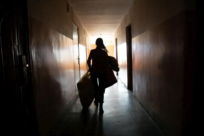
UNHCR: Ukraine, other conflicts push forcibly displaced total over 100 million for first time
23 May 2022Figure must ‘serve as a wake-up call’ for more action to promote peace and address all causes of forced displacement, says UN High Commissioner for Refugees, Filippo Grandi
